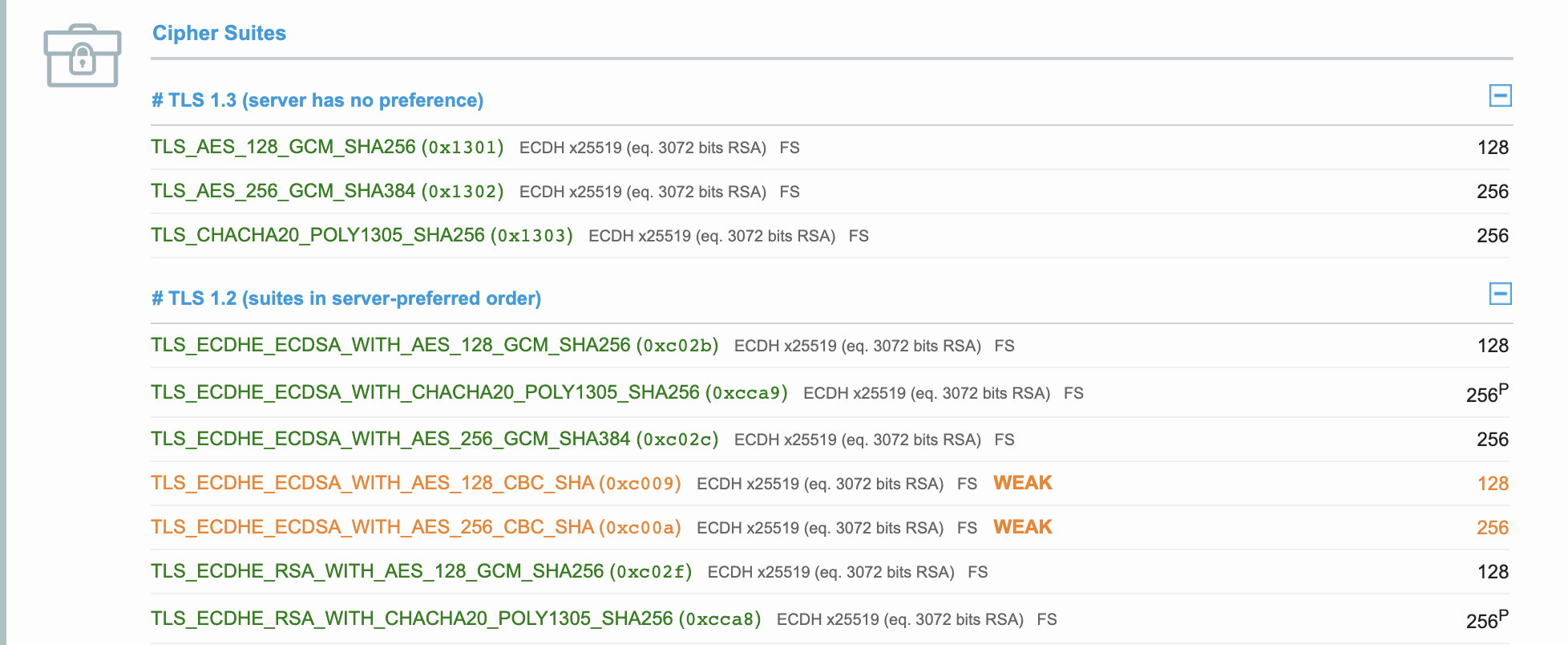I was looking at Cipher Suites indicated on SSLLabs and I noticed something, here is a result for google.com (for instance):
With TLS 1.2, examples of Cipher Suites are:
- TLS_ECDHE_ECDSA_WITH_AES_128_GCM_SHA256: in which I understand that the server authentication part is done using ECDSA, the session ephemeral key is established using ECDHE, the symmetric encryption algorithm is AES_128_GCM and the message authentication is using SHA256
- TLS_ECDHE_RSA_WITH_AES_128_GCM_SHA256: in which the difference is that the server authentication is performed using RSA
First, is that interpretation correct?
Now, with TLS 1.3 I see Cipher Suites like TLS_AES_128_GCM_SHA256 which do not mention a public/private key algorithm (e.g. RSA, ECDSA).
What is the server authentication algorithm used in this case and why is it not specified in the Cipher Suite?

